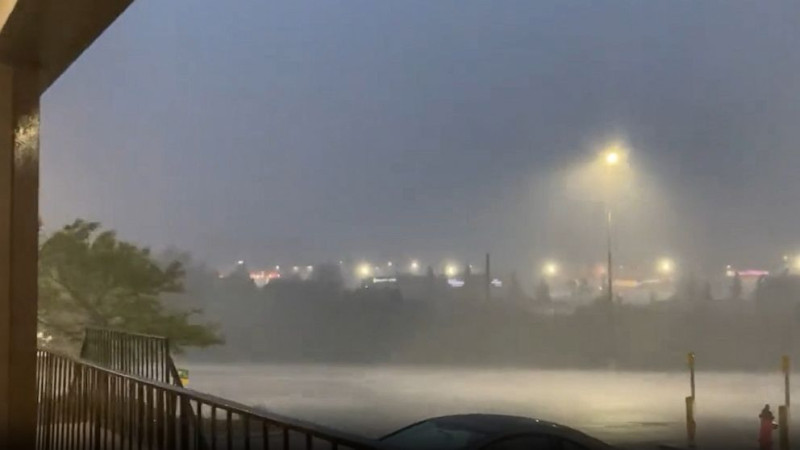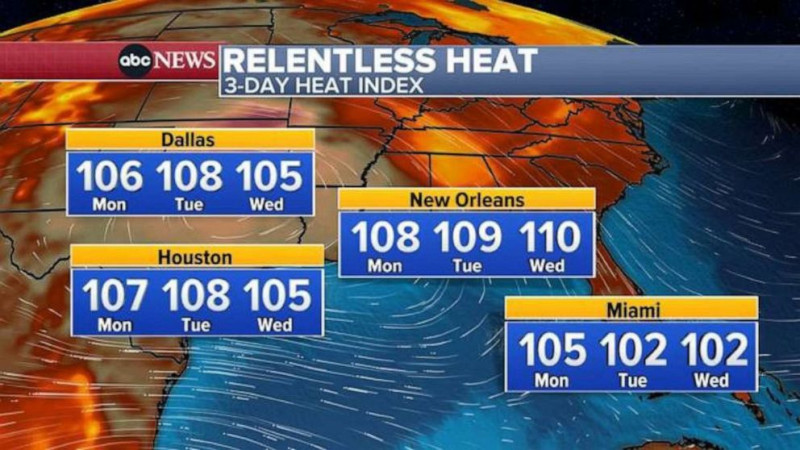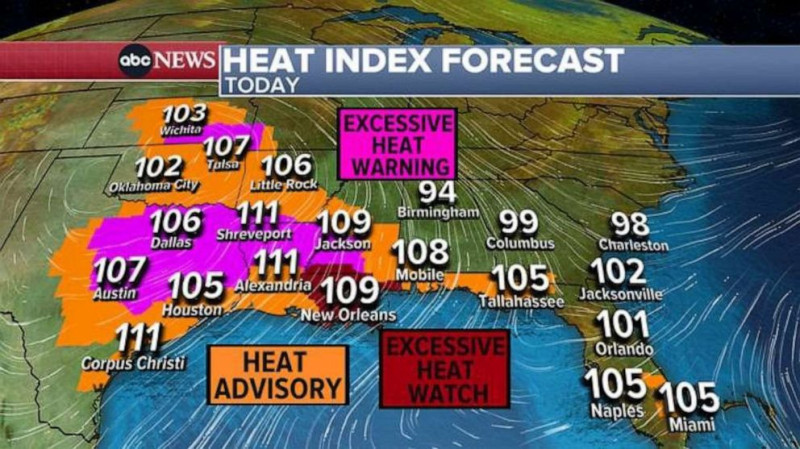Wicked weather slams millions in US as storms snap heat wave on East Coast
Millions of people in the eastern United States awoke to cooler, drier air on Monday morning after blustery storms helped bring an end to the first heat wave of the season.
Over the weekend, severe storms swept through Virginia, Washington, D.C., and Maryland, downing trees and knocking out power for more than 200,000 customers.
There were five reported tornadoes from Colorado to Massachusetts on Saturday, according to the National Weather Service. One tornado with winds up to 105 miles per hour touched down in Foxborough, Massachusetts, about 22 miles southwest of Boston.
MORE: How to shelter during a tornado if you don't have a basement

Strong winds from the tornado in Foxborough caused a tree to fall on a house in the nearby town of Easton, with the residents narrowly escaping.
"My wife was actually on the porch filming the rain and she turned her camera off. Within 15 seconds, that tree came down," Mark Butler told Boston ABC affiliate WCVB.
In Washington, D.C., winds gusted to 84 mph as storms moved through the area.
MORE: Arizona medical examiner's office at 106% capacity, brings in refrigeration units amid deadly heat wave

On Sunday, powerful storms pummelled the Plains, from Montana to Missouri, with damaging winds up to 91 mph and hail larger than the size of a baseball. Kansas City, Missouri, got hit hard overnight with winds gusting near 80 mph in the metropolitan area.
Now, comfortable weather is settling on the East Coast.
But scorching temperatures continue to plague the South, where more than 70 million Americans are on alert for extreme heat.
MORE: Extreme heat safety tips

Arizona's capital is currently on a record stretch of 31 consecutive days with high temperatures at or above 110 degrees Fahrenheit. Earlier this month, overnight temperatures in Phoenix did not drop below 90 degrees for a record 16 days in a row.
For now, the Southwest will catch a short break from the record-smashing heat wave as monsoon storms bring much-needed moisture to the area. The heat will instead focus on Texas and the Gulf Coast this week, according to the latest weather forecast.
Austin, Texas, already went 19 straight days with high temperatures at or above 103 degrees, the most on record and marking the hottest July ever for the city.
MORE: One urban heat island has a plan to bring residents some relief
The National Weather Service has issued heat alerts that are in effect Monday morning across 10 states, from Florida to Kansas. A number of cities could see record high temperatures by the afternoon, including 106 degrees in Dallas, Texas; 103 degrees in Austin, Houston and San Antonio, Texas; 99 degrees in New Orleans, Louisiana; and 95 degrees in Miami, Florida. The heat index values -- a measure of how hot it really feels when relative humidity is combined with the air temperature -- are forecast to be even higher.
The heat waves occurring in North America, Europe and China throughout the month of July would not have been possible without global warming, according to a rapid attribution analysis by World Weather Attribution, an academic collaboration that uses weather observations and climate models to calculate how climate change influences the intensity and likelihood of extreme weather events. In some regions, the sweltering temperatures have triggered wildfires as well as heat-related hospital admissions and deaths, the researchers said.
ABC News' Kenton Gewecke, Dan Peck and Ginger Zee contributed to this report.
Disclaimer: The copyright of this article belongs to the original author. Reposting this article is solely for the purpose of information dissemination and does not constitute any investment advice. If there is any infringement, please contact us immediately. We will make corrections or deletions as necessary. Thank you.





